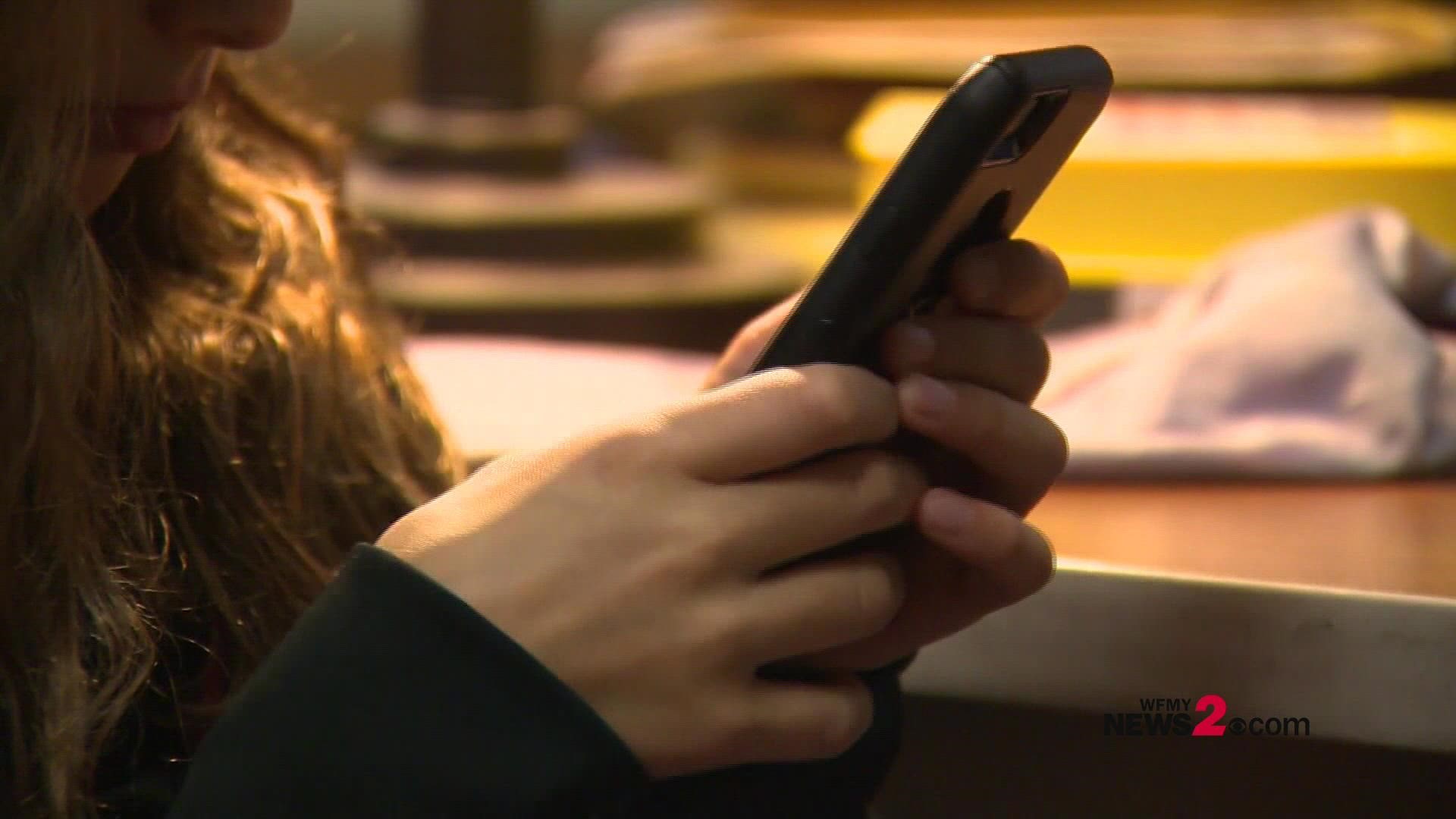LEXINGTON, N.C. — A Davidson County judge says students as young as fourth grade are participating in explicit picture sharing.
To address the growing problem, the Davidson County sheriff's office supports the TAME program.
The TAME program stands for teenage, alcohol, marijuana, and education. The program also spreads awareness of the dangers of sexting and the importance of making good choices.
Once a month, Judge Mary Covington presents slideshows to the kids in her district. The slides break down what sexting is, its harms of it, and the repercussions of sending an obscene picture.
Judge Covington said students are often surprised to learn there are charges for helping other minors take sexual pictures, for sending them and having them in their possession.
"The last time I spoke at TAME. I had three children come up to me after I spoke, and they literally said, "I got this video the other day and I don't know what to do with it," and it was an unbelievable video, a sex video of another 12-year-old sending a sexual act of himself to this other 12-year-old in his class. They do this because they think they're courting each other," said Judge Covington.
Judge Covington said every human trafficking case they've had and almost every pedophile case they've dealt with has started with sexting.
She stresses the obligation parents have to monitor their children's devices.
"Many schools have rules that you can't have a phone. They don't monitor outside the school that's a parent's job and it always starts in the home if we don't have parents or guardians or grandparents or anybody who is raising the child that is not actively monitoring their phones, they're going to make poor choices," expressed Judge Covington.
If someone sends an inappropriate picture, it can be sent out to different people several times. This could cause the person in the photo to have anxiety and depression. Judge Covington says it can even lead to a suicide attempt.
"This stuff, if it doesn't kill them it's going to lead to drug use, it's going to lead to even worse being a perpetrator because hurt people hurt people. And they're going to start victimizing, but no parent ever thinks that their child would ever do anything like this. This is not a respecter of persons, every single child is vulnerable," said Judge Covington.
She says there is an easy way to help kids know if a photo should be sent or not. She says, if a kid wouldn't show their pastor or favorite teacher the photo, it should not be sent to anyone else, either.

